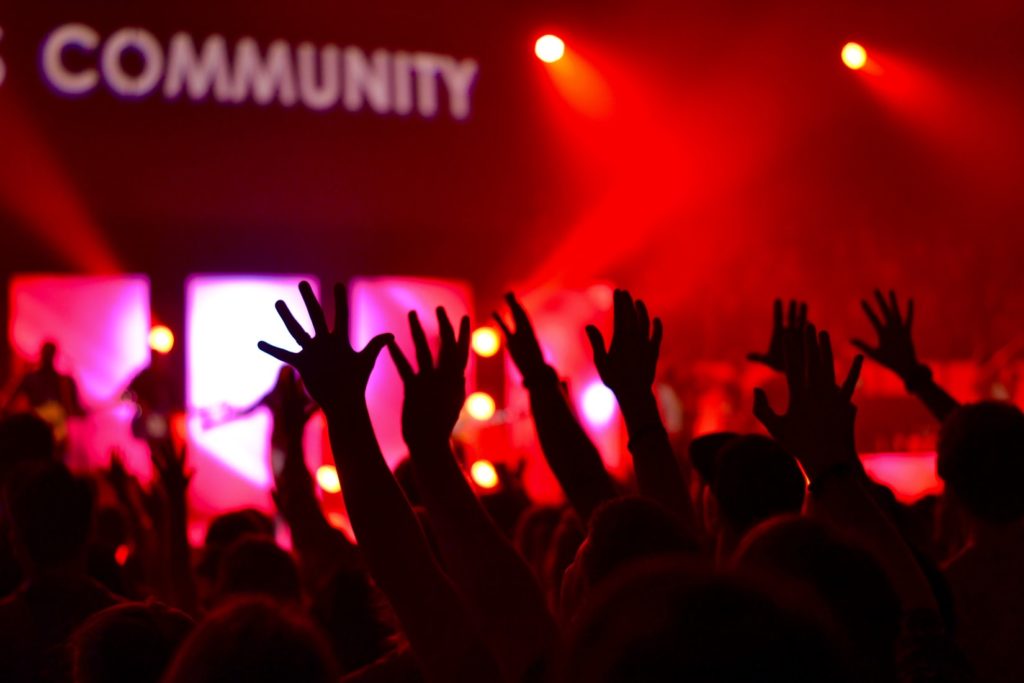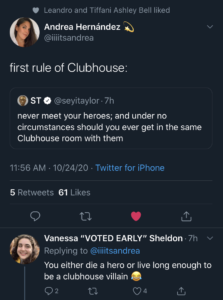
By Kiki Schirr, {grow} Contributing Columnist
The 2020 political season is finally over. For many people, regardless of the Presidential election outcome, a decline in the constant social media bickering between friends, or former friends, will be a relief.
As this stress winds down and we survey the damage done to relationships, it’s a good time to consider the idea of peace, civility, and an online brand community. Is it possible for us to all get along?
As marketers who may be responsible for a brand community, keeping the peace between fans, followers, and even detractors has to be a high priority. Nothing can drain your time and energy like bickering customers on your own site.
But has anyone figured out a formula for building a truly friendly brand community?
I would argue that a fool-proof solution is still elusive. However, this article will provide a quick rundown of best practices currently proving to be effective.
Friendly communities by any other name
While William Shakespeare felt that a rose by any other name would smell as sweet, we marketers are well aware that wine tastes better when we think it’s expensive and popular. Often even if we’re wrong.
When building a community, the community name is an opportunity to stamp your values into the heart of your product.
Clubhouse, a voice chat community, makes me think of The He Man Women Hater’s Club (No Girls Allowed!), The Freemasons, Fraternities, golf clubs, and many other establishments that have or still bar women or BIPOC from joining. Is it any surprise that it has become known as a haven for wealthy Californian VCs to complain about the pressure on them to be politically correct? Of course, its lack of blocking or reporting features is also a pretty clear message, as women have already discovered.
Two different messages from community names
Discord is a series of privately moderated group chats for video gamers. And shouting matches are more common than not.
By comparison, Telepath has crafted a community of kindness. Critics suggest, not without evidence, that much of it has been achieved by only hosting a narrow band of the political spectrum. But the community is growing and there seem to be relatively few blow-ups even for the currently small size.
Marc Bodnick, one of the founders, said this about the name: “I came across the idea from a book my kids love — Keeper of the Lost Cities…. I liked the idea of sending your thoughts to others kinda magically and in a very friendly way.”
Communities need to declare values and choices loudly
When I created a video chat based community in 2017 I was already worried about moderation. I wanted to, as Telepath is now doing, encourage our users to use their real names in an effort to suggest real consequences for bad behavior.
We weeded out fake names by using Facebook login. Then we filtered new or friendless profiles.
Our second strategy was to cover the site in pink and rainbows.
Even the name, WeKiki, which sounds eponymous, was meant to be an homage to the Black-gay-slang term for chat-focused social gatherings. Our logo was a crude sketch of Ana Matronic in “Let’s Have a Kiki.”
The rainbows worked much better than I thought they would.
While stability testing, I once stumbled into a party with only new users. They were starting to get homophobic—but corrected themselves. “Guess this really isn’t the place for this discussion,” one guy said.
“Yeah, I’d bet this place would ban us.” And they changed the topic without any input or criticism from our regular community members!
I was stunned.
Brand community needs rules for order and civility
Of course, a friendly name and declared values aren’t enough to assure your community remains troll-free.
MeWe was started as a privacy-focused alternative to sites like Facebook, which profit from selling your data. To my ears, the name “MeWe” sounds like an opportunity for individuals to find their people.
While certainly a friendly mission, MeWe’s aim to bring people together might be a little too effective. OneZero is reporting that MeWe has joined Zello as a place for armed militias to organize training camps.
From these examples, we can conclude the bare minimum for ensuring a peaceful and safe community requires:
- Clearly defined community standards
- “Block” and “report user” capabilities
- Ability for moderators to punish accounts in multiple ways according to the severity of the infraction. Limiting punishment to “do nothing” or “completely ban” means that moderators rarely punish deserving behavior
- A method to appeal unfair or retaliatory punishments
- A way for the community or management to review moderator behavior
- A high moderator-to-active-account ratio
- A crisis response policy that includes both threats of harming others and self-harm
- A highly skilled cybersecurity expert to jump in if your CTO needs help (my WeKiki cofounder built an amazing IP ban that did wonders for keeping bad actors away permanently, but this solution is drastic and technically challenging)
The politics of brand community
Although it’s likely that not even Telegram has yet discovered the ‘secret sauce’ of friendly and disinformation-free communities, there are plenty of bad examples to analyze for the point of failure.
And luckily for us, there are some very good breakdowns of where companies went wrong and which decisions were ultimate downfalls. I’ll link you to a few. Read more if you’re building a community yourself. If you’re not, my summaries will suffice.
Last year, Mark Schaefer and Brooke Sellas recorded a Marketing Companion episode discussing Facebook’s problem with fake news. In this discussion, Mark made the key observation that some of the failures are the fault of the U.S. legal system. Our laws are unequipped to tackle free speech vs. content generated by users wishing to do people or this country harm.
Sarah Perez, a veteran reporter at TechCrunch, has written what I believe is the most honest review of Telepath and the race to build kind communities. Although I love Telepath and hope it achieves its goal, Sarah points out that the cost of peace has been barring entry to certain political groups. So I’m glad she said it, because I might not have been able to be so unbiased.
Reddit is its own brand community lesson
There have been many criticisms of Reddit’s dismal record of allowing harassment to persist unchecked. Most articles date back to the end of Ellen Pao’s tenure at Reddit, but I was sorry to see that a recent AMA with Tracy Chou, former harassment target and founder of Block Party, ended incredibly poorly.
What her article didn’t mention — and shocked me most — was that a Reddit employee followed her to Telegram (currently still in beta and invite-only) to continue harassing her there. He provided proof of his employment and dragged former Reddit employees into the fray, sometimes having them question Tracy as if they were innocent bystanders without ties to Reddit.
This man’s harassment could have been a case study on why every company must have a social media policy on brand-appropriate behavior. Yet to the best of my knowledge, there has been no condemnation of his behavior from Reddit.
So far, there is no perfect step by step guide to keeping peace in a brand community, but I hope some of these ideas and observations will help!
 Kiki Schirr is a freelance marketer and writer who enjoys new technologies. You can email Kiki Schirr at her full name without spaces at Gmail. Just remember that she responds faster on Twitter.
Kiki Schirr is a freelance marketer and writer who enjoys new technologies. You can email Kiki Schirr at her full name without spaces at Gmail. Just remember that she responds faster on Twitter.
Illustration courtesy Unsplash.com



